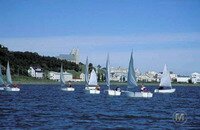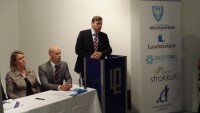|
||||||
|
|||||||||||||||
Information and reports
You can download Adobe Acrobat reader from here. 03. June 2010 Iceland is more vibrant than ever Click the link below for a refreshing video presentation. 12. November 2008 After the collapse of our finance system situation for businesses in the region is obvious.
Every company on its own, and together as a whole, we have to:
1) Each has to get a clear picture of the situation on hand.
2) Think and regroup
3) Act swiftly.
The situation at hand is obvious, now we have to regroup and act swiftly.
That?s why we want to inform you about one of our swift strategy actions, available for businesses who already deal with European markets, businesses who want or need support due to current situation, or businesses who are interested in starting international markets.
14. Mars 2008 AFE is the Icelandic partner in a new international research program How do Nordic regions develop their knowledge economy? So far such issues have hardly been researched, but by 2010 we will definitively know more. The reason is that this year the large research program on Regional trajectories to the knowledge economy ? Nordic-European comparisons (REKENE) will be finalised. 04. February 2008 several factors need to be studied While most companies in mature businesses value stability, companies that have already plants in politically stable countries might be tempted to locate in unstable countries to cut costs, even if it means higher risk. 14. September 2007 A new plant in Akureyri Becromal spa, a World leader in manufacturing aluminium foil for production of electrolytic capacitors for the electrical and electronic industry announces the intention to expand its production in Akureyri. Share
|
|||||||||||||||
|




